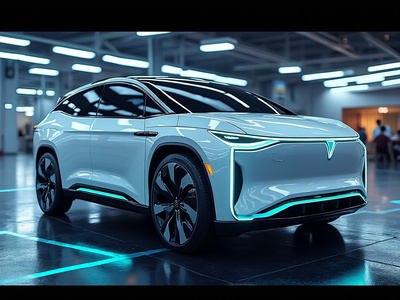
Thailand's Investment in Clean Energy Technologies Set to Rise
Billions allocated to enhance renewable power capabilities through technological advancements.
Investment in innovative technologies aimed at ensuring a stable supply of clean electricity in Thailand is poised for significant growth as the country increases its reliance on solar and wind power.
Energy expert Somporn Sirisumrannukul, a member of the executive committee of the Institute of Electrical and Electronics Engineers (IEEE) Thailand Section, indicates that several billion baht will be allocated by state power suppliers and companies specializing in electricity transmission and distribution over the next five to seven years, supporting Thailand's shift towards renewable energy sources.
According to the 2024 power development plan, which extends to 2037, the amount of renewable energy in Thailand's total power supply is projected to rise to 51% from 22% as of the end of 2024. Concurrently, the reliance on fossil fuels is expected to decrease to 48% from 80% within the same time frame.
As solar and wind energy are inherently intermittent due to their dependence on weather patterns, advanced technologies will be critical in managing these resources effectively.
Mr. Somporn emphasized the importance of smart technologies capable of predicting periods of low sunlight or reduced wind activity.
Such predictive capabilities are vital for clean energy management, allowing power suppliers to adjust their reliance on alternative energy sources when necessary.
Battery storage systems have emerged as an essential component for backing up energy derived from solar and wind sources.
They provide a means to store excess energy generated during peak production times for use when generation is low.
Additionally, demand response programs, utilizing sophisticated software, assist electricity suppliers in efficiently planning and managing the interplay between supply and demand for renewable energy.
These technological advancements not only enhance operational efficiency but are also expected to contribute to lower electricity costs in both wholesale and retail markets.
To further discuss these evolving technologies and the transition towards carbon neutrality, the IEEE Power & Energy Society (Thailand) will convene an international academic conference and exhibition from November 26 to 29 at the Queen Sirikit National Convention Center in Bangkok.
Energy expert Somporn Sirisumrannukul, a member of the executive committee of the Institute of Electrical and Electronics Engineers (IEEE) Thailand Section, indicates that several billion baht will be allocated by state power suppliers and companies specializing in electricity transmission and distribution over the next five to seven years, supporting Thailand's shift towards renewable energy sources.
According to the 2024 power development plan, which extends to 2037, the amount of renewable energy in Thailand's total power supply is projected to rise to 51% from 22% as of the end of 2024. Concurrently, the reliance on fossil fuels is expected to decrease to 48% from 80% within the same time frame.
As solar and wind energy are inherently intermittent due to their dependence on weather patterns, advanced technologies will be critical in managing these resources effectively.
Mr. Somporn emphasized the importance of smart technologies capable of predicting periods of low sunlight or reduced wind activity.
Such predictive capabilities are vital for clean energy management, allowing power suppliers to adjust their reliance on alternative energy sources when necessary.
Battery storage systems have emerged as an essential component for backing up energy derived from solar and wind sources.
They provide a means to store excess energy generated during peak production times for use when generation is low.
Additionally, demand response programs, utilizing sophisticated software, assist electricity suppliers in efficiently planning and managing the interplay between supply and demand for renewable energy.
These technological advancements not only enhance operational efficiency but are also expected to contribute to lower electricity costs in both wholesale and retail markets.
To further discuss these evolving technologies and the transition towards carbon neutrality, the IEEE Power & Energy Society (Thailand) will convene an international academic conference and exhibition from November 26 to 29 at the Queen Sirikit National Convention Center in Bangkok.











